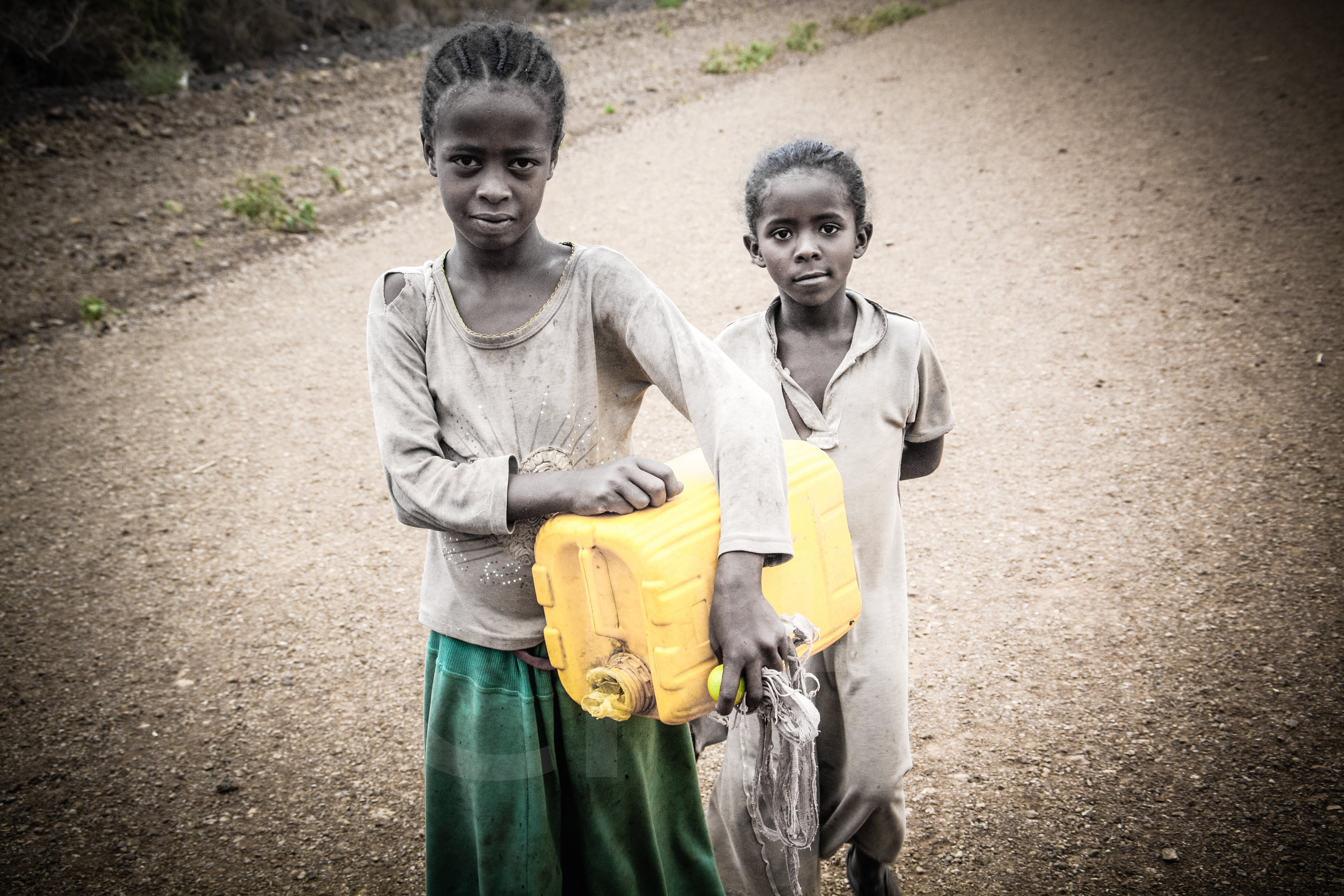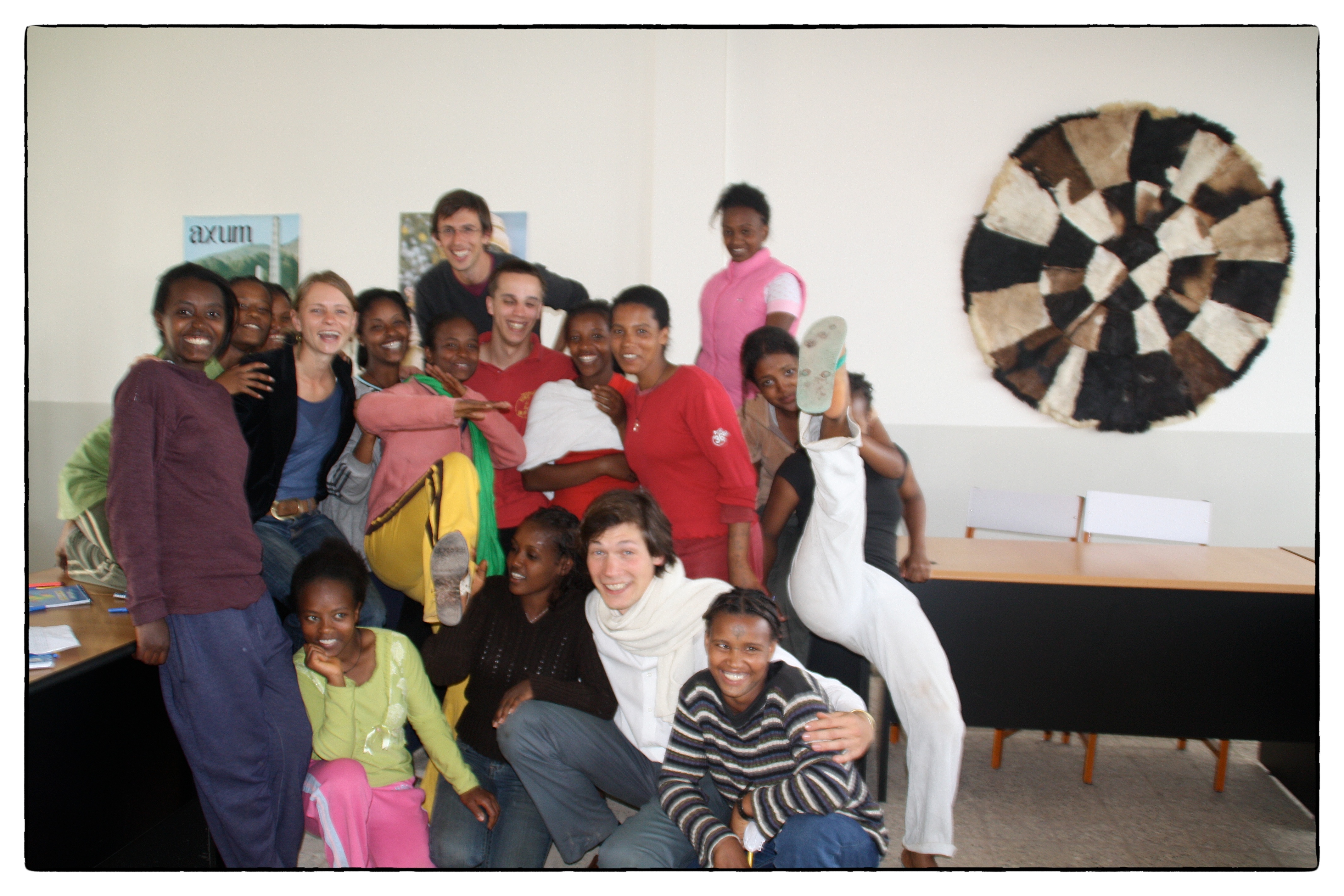 Wir haben es mit Eurer Hilfe in erstaunlich kurzer Zeit geschafft, mehr als 130 Päckchen für Flüchtlinge zu Weihnachten zu sammeln. Die Geschenke sind farbenfroh, glitzernd und liebevoll geworden. Jedes einzelne Geschenk enthält einen besonderen Gruß von einem Münchner an einen dem Schenkenden unbekannten Menschen. Spannend, schön zugleich. Continue reading
Wir haben es mit Eurer Hilfe in erstaunlich kurzer Zeit geschafft, mehr als 130 Päckchen für Flüchtlinge zu Weihnachten zu sammeln. Die Geschenke sind farbenfroh, glitzernd und liebevoll geworden. Jedes einzelne Geschenk enthält einen besonderen Gruß von einem Münchner an einen dem Schenkenden unbekannten Menschen. Spannend, schön zugleich. Continue reading
Category Archives: News
Die Idee für ein doppeltes XMAS Geschenk…
 …ist unsere Stella Bildung Bewegt e.V. Förderkreis Mitgliedschaft, die sich auch charmant unter den eigenen Weihnachtsbaum legen lässt.
…ist unsere Stella Bildung Bewegt e.V. Förderkreis Mitgliedschaft, die sich auch charmant unter den eigenen Weihnachtsbaum legen lässt.
Mit Eurem Beitrag werden unsere Bildungsprojekte erst ermöglicht. Durch den regelmäßigen Zahlungseingang können wir bei Stella unsere Projekte mit Vorlauf planen und entsprechend realisieren. Continue reading
Mit gutem Beispiel voran – auf das viele weitere folgen!
“Als glückliche Eltern von drei gesunden Kindern, denen es an nichts fehlt, wollten wir die Taufe unserer beiden Jungen gerne nutzen, um ein gemeinnütziges Projekt zu unterstützen und somit voller Dankbarkeit unser Glück zu teilen.
So baten wir unsere Gäste im Herbst 2015, auf Geschenke für Maximilian und Alexander zu verzichten und stattdessen an Stella Bildung Bewegt e.V. zu spenden. Als Lehrerin weiß ich sehr genau, wie wichtig der Zugang zu Bildung und ein guter Start ins Erwachsenenleben ist. Über die große Spendenbereitschaft unserer Familien und Freunde und die Tatsache, dass Macquarie, der Arbeitgeber meines Mannes, den gespendeten Betrag verdoppelt hat, haben wir uns sehr gefreut. Unseren Kindern möchten wir viele Möglichkeiten aufzeigen, sich zu engagieren und Gutes zu tun und selbst mit gutem Beispiel voran gehen.” – Stephanie Fürstenberg
Over 100 Christkindchen in the meantime…
 …you are incredible. Within just a couple of days, I received so many lovely messages from volunteers that would like to be engaged and support us with our Stella Bildung Bewegt e.V. XMAS present activity for young refugees. Continue reading
…you are incredible. Within just a couple of days, I received so many lovely messages from volunteers that would like to be engaged and support us with our Stella Bildung Bewegt e.V. XMAS present activity for young refugees. Continue reading
Ethiopia – wer schon mal immer wissen wollte, wie Kindheit auch aussehen kann
 Wir sind uns selten bewusst, wie gut es uns geht. Welche unbeschwerte privilegierte Kindheit wir genossen haben. Continue reading
Wir sind uns selten bewusst, wie gut es uns geht. Welche unbeschwerte privilegierte Kindheit wir genossen haben. Continue reading
Weihnachtsaktion 2015 – Schuuuub und los gehts, jeder darf mitmachen :)
Liebe Freunde und Stella-Unterstützer,
wie Ihr wisst, ist es die Aufgabe von Stella, nicht privilegierten Kindern und Jugendlichen durch Bildung zu neuen Chancen im Leben zu verhelfen. So wie in den vergangenen Jahren möchten wir auch in diesem Jahr bedürftigen Menschen mit unseren Weihnachtspäckchen eine kleine Freude bereiten. Continue reading
Screening my hard disk…
 …and I got hold of one of the pics that were taking during my stay in Addis, Ethiopia.
…and I got hold of one of the pics that were taking during my stay in Addis, Ethiopia.
I still remember the great spirit of the young people despite their challenging situation, their challenging environment – in particular for women. Continue reading
Es gibt keine Flucht ohne Not
Wir leben in einer Welt, in der fast 60 Millionen Menschen auf der Flucht sind. Wir leben in einer Welt, in der Konflikte nicht nur Verwundete und Verhungerte produzieren sondern auch immer mehr Hoffnungslose. Einige davon wollen nicht mehr in Flüchtlingslagern, Hütten und Zelten bleiben. Sie wollen aus ihrer Rolle als Opfer und Mitleidsempfänger. Diese Menschen haben die Absicht, ihr Schicksal in die Hand zu nehmen und sich auf den Weg in ein besseres Leben zu machen. Die Gründe für eine Flucht sind vielseitig: Krieg, Unterdrückung, Armut, Schicksalsschläge, Hoffnung auf ein besseres Leben. Nur einen Grund gibt es nicht: Eine Flucht ohne Not.
Ehrliche Frage an uns: Würden wir es vielleicht nicht genauso machen?
Die Flüchtlinge kommen aus Ländern wie Sierra Leone, Haiti, Sudan, Syrien, Somalia, Zentralafrikanische Republik, Simbabwe, Sri Lanka, Taschad, Pakistan. Letztlich sind sie Boten aus einer Welt der nicht gelösten Konflikte, in die selbst die couragiertesten Helfer oft nicht mehr reisen. Eine Rettung der Flüchtlinge ist bei genauer Betrachtung nur das letzte Glied in einer Kette des Versagens.
Auszug aus einem Bericht der “Phoenix” der Vereinigung MSF:
Vizepräsidentin des Bayerischen Landtages a.D. an Stella Bildung Bewegt e.V.
Sehr geehrte Damen und Herren,
Stella Bildung Bewegt e.V. hat es sich als international agierender Verein zur Aufgabe gemacht, bedürftigen und benachteiligten Kindern in notleidenden Regionen dieser Welt den Zugang zu Bildung zu ermöglichen und ihnen eine Zukunftsperspektive und damit die Chance auf ein selbst bestimmtes Leben zu eröffnen. Continue reading
UN Sustainable Development Summit 2015 in NYC
UN Sustainable Development Summit 2015 in NYC: Ensure inclusive and quality education for all and promote lifelong learning. Continue reading
Umgang mit Flucht nach Deutschland – notwendige politische Maßnahmen aus sozialpsychologischer Sicht
Prof. Dr. Ulrich Wagner, Sozialpsychologe an der Universität Marburg und Initiator eines offenen Briefes an die Bundekanzlerin und die parlamentarischen Vertretungen des Bundes und der Länder, im Interview mit der Deutschen Gesellschaft für Psychologie.
Frage: Herr Prof. Wagner, Sie haben gemeinsam mit Kolleginnen und Kollegen aus der Sozialpsychologie einen offenen Brief an die Bundekanzlerin und die parlamentarischen Vertretungen des Bundes und der Länder verfasst, mit dem Sie auf mögliche Probleme im Umgang mit der Flucht nach Deutschland hinweisen. Was sind denn aus Ihrer – sozialpsychologischen – Sicht heraus die Probleme, denen sich die Regierung aktuell stellen sollte?
Prof. Wagner: Gegenwärtig ist Hilfsbereitschaft Geflüchteten gegenüber in Deutschland sehr eindrucksvoll. Gleichzeitig gibt es ein großes Maß an Unsicherheit darüber, was im Zusammenhang mit der Flucht nach Deutschland und Europa gerade geschieht und wie die Situation zu bewerten ist. Das heißt, viele Menschen sind in ihrer Haltung ambivalent und suchen nach Erklärungen. Sie versuchen, ihre Gefühle Geflüchteten gegenüber zu ordnen. Sozialpsychologinnen und -psychologen wissen, dass Menschen unter solchen Bedingungen sehr sensibel sind für kleine Hinweise, die ihnen eine Interpretation erlauben. Eine sehr wichtige Quelle für solche Informationen sind politische Meinungsführer. Unsere Sorge ist, dass auf politischer Seite unterschätzt wird, wie prekär die gegenwärtige Situation ist, und – bedacht oder unbedacht – Bewertungen der gegenwärtigen Fluchtsituation vorgenommen werden, die die Stimmung in Deutschland zum Kippen bringen könnten. Gefragt sind jetzt klare und glaubwürdige politische Antworten in Sachfragen und das Aufzeigen von humanitären Lösungswegen.
Frage: Viele Menschen zeigen gerade eine unglaublich hohe Hilfsbereitschaft und heißen die Flüchtlinge in Deutschland aktiv Willkommen. Auf der anderen Seite gibt es Vorurteile und offene Zurückweisung. Wodurch werden diese unterschiedlichen Reaktionen beeinflusst?
Prof. Wagner: Unterstützung auf der einen Seite und Zurückweisung, Diskriminierung und Gewalt auf der anderen sind wesentlich von Emotionen beeinflusst. Die vielen Helfenden erleben offensichtlich Mitleid und Empathie: Sie können sich in die Lage der Geflüchteten versetzen und empfinden mit ihnen. Vorurteile und Ablehnung sind Folgen von Angst oder gar Hass. Dabei gehen diese unterschiedlichen Gefühle häufig nicht auf direkte, persönliche Erfahrungen zurück, sondern sind durch Berichte von Meinungsführern und Medien vermittelt. Die Gefahr besteht, dass leichte Veränderungen im politischen Klima und in der Medienberichterstattung in Bezug auf die Haltung in der Bevölkerung zu Geflüchteten zu große – negative – Veränderungen herbeiführen könnten.
Frage: Wie könnte die Regierung denn in dieser akuten Notlage handeln, um den Problemen entgegenzuwirken?
Prof. Wagner: Die Sozialpsychologie verfügt über einen empirisch gut abgesicherten Fundus von Wissen darüber, wie destruktiv verlaufende Konflikte zwischen Gruppen, hier Einheimischen und Geflüchteten, entstehen. Ein wichtiger, empirisch vielfältig belegter Einflussfaktor ist, ob die beteiligten Gruppen den Eindruck haben, sich gegenseitig etwas streitig zu machen.
Unsere Empfehlung an die Politik ist daher: Die Aufnahme von Flüchtlingen sollte möglichst wenige Einschränkungen für die einheimische Bevölkerung mit sich bringen. Die Bundesrepublik Deutschland ist ein sehr reiches Land. Bei entsprechendem politischem Willen ist es möglich, Geflüchtete aufzunehmen, ohne auf Dauer Sporthallen oder Fußballplätze belegen zu müssen. Viel zu wenig werden außerdem die Vorteile diskutiert, die Einwanderung für die Bundesrepublik mit sich bringt: so könnte sich durch eine sinnvolle Integration der Zuwandernden auf den deutschen Arbeitsmarkt unter Umständen auch der Fachkräftemangel in manchen Berufen reduzieren und die Infrastruktur erhalten lassen, wie in ländlichen Regionen die Grundschule am Ort und der Kindergarten.
Ein zweiter, in der Sozialpsychologie sehr gut belegter Befund ist, dass besonders solche Menschen auf Flüchtlinge mit Misstrauen und Ablehnung reagieren, die keine Erfahrung mit „Fremden“ haben. Wir wissen durch viele Studien: Kontakt hilft, Vorurteile zu reduzieren. Durchgängig, seit es seit 1989 zuverlässige Umfragen gibt, zeigt sich ein größeres Maß an Ablehnung gegenüber Einwanderung im Osten Deutschlands als im Westen. Wir können nachwiesen, dass das damit zusammen hängt, dass im Osten Deutschlands historisch bedingt weniger Menschen mit Migrationshintergrund leben als im Westen und dass das den Menschen im Osten die Möglichkeit nimmt, Kontakterfahrungen mit Fremden zu machen und so ihre Vorurteile in Frage zu stellen. Dasselbe gilt für viele ländliche Regionen. Eine Empfehlung aus der Sozialpsychologie an die Politik ist, Kontakte zu ermöglichen. Das bedeutet: Vermehrt Unterbringung von Geflüchteten im Osten Deutschlands und in ländlichen Regionen, kleine Einheiten, die Kontakte zwischen Einheimischen und Geflüchteten möglich machen, aktive Aufnahme von Geflüchteten in die lokalen Infrastrukturen, wie Kindergärten, Schulen und Sportvereine und eine lokale Ansiedlungspolitik, die eine Ghettobildung vermeidet.
Das Interview führte Dr. Anne Klostermann, DGPs.
Den offenen Brief an die Bundeskanzlerin finden Sie hier: https://www.uni-marburg.de/fb04/team-wagner/aktuelles
Kontakt bei Rückfragen:
Prof. Dr. Ulrich Wagner
Philipps Universität Marburg
Fachbereich Psychologie
AE Sozialpsychologie
E-Mail: wagner1@uni-marburg.de
Tel.: 06421 282 3664
Was macht Stella Bildung Bewegt e.V.?
Chancenbauen durch Bildungsarbeit
Stella Bildung Bewegt e.V. ist ein gemeinnütziger Verein, der nicht privilegierten Kindern und Jugendlichen durch Bildung zu neuen Chancen im Leben verhilft. Stella Bildung Bewegt e.V. versteht sich dabei als Brückenbauer zwischen Bildungseinrichtung und Sponsor.
Über 70 Millionen Kinder besuchen keine Schule
Weltweit kann jeder fünfte Erwachsene weder rechnen noch schreiben. Mehr als 70 Millionen Kinder besuchen keine Schule. Es liegt an uns, diese Missstände durch Bildung nachhaltig zu verbessern – davon sind wir von Stella überzeugt.
Uns geht es so gut, dass wir Hilfe zur Selbsthilfe bieten können
„Wir als Gründer, Mitglieder und Förderer von Stella haben alle eine hervorragende Bildung genossen und somit die Chance erhalten, uns beruflich zu verwirklichen. Wir fühlen uns verpflichtet, davon etwas zurückzugeben.“
Die Mutter hat nie erzählt, dass die Schwangerschaft ein Unfall war. Nun will die erwachsene Tochter wissen, ob sie ein Wunschkind war. Ehrlich sein?
Eine Leserin fragt:
Ich habe ein gutes Verhältnis zu meiner Tochter (32). Neulich saßen wir zusammen, da wollte sie wissen: Mama, war ich eigentlich geplant? Ich habe ihr nie gesagt, dass sie ein “Unfall” war und die Schwangerschaft mein Leben damals ziemlich durcheinandergewirbelt hat. Heute bin ich natürlich sehr froh, dass sie da ist. Muss ich sie über die Umstände ihrer Zeugung aufklären? Inga K., München
Experten antworten:
Kirsten Boie: Die Wahrheit ist bestimmt keine Kränkung
Jeder Mensch hat das Bedürfnis zu erfahren, wer seine Eltern sind – nicht nur, wer die Mutter ist, sondern auch der Vater. (Es klingt, als hätten Sie Ihrer Tochter auch darüber nichts gesagt.) Das sind wichtige Bausteine der Identität. Die Umstände der Zeugung dagegen – am Strand, im Bett, im Auto, zu viel Alkohol – spielen dafür keine Rolle, die müssen sicher nicht geklärt werden. Warum haben Sie Angst davor, Ihrer Tochter zu erzählen, dass sie ursprünglich nicht geplant war? Sie hat doch jetzt 32 Jahre lang erlebt, dass sie gewollt und geliebt ist! Oder sind Sie in Sorge, dass das Bild, das Sie Ihrer Tochter gegenüber von sich gezeichnet haben, durch diese “Aufklärung” einen Riss bekommen könnte, dass Ihre Tochter Sie danach anders sieht?
Die Wahrheit ist für Ihre Tochter darum jedenfalls nach all diesen schönen gemeinsamen Jahren ganz bestimmt keine Kränkung, sicher kann Sie gut damit umgehen. Und wenn sie erfährt, wie sehr sie Ihr Leben durcheinandergewirbelt hat, wird sie vermutlich nur mehr Hochachtung dafür empfinden, wie Sie das Leben mit ihr gemeistert haben. Die Wahrheit wird die Beziehung zwischen Ihnen nicht ändern. Schweigen oder Lügen dagegen wird das auf die Dauer ganz sicher tun.
Quelle: http://www.sueddeutsche.de/leben/erziehungsfragen-mama-war-ich-eigentlich-geplant-1.2646636
Direct relationship between frequency of family meals and social problems
“We know, for instance, that there is a direct, inverse relationship between frequency of family meals and social problems. Bluntly stated, members of families who eat together regularly are statistically less likely to stick up liquor stores, blow up meth labs, give birth to crack babies, commit suicide, or make donkey porn.”
For more reading: http://www.ncbi.nlm.nih.gov/pmc/articles/PMC3498594/
Sohini – the lovely childcare person in Delhi: a portrait
…if you want to find out more about her motivation, her daily life routine, her way to keep up motivation despite the hard and challenging circumstances – please continue to read here and enjoy the interview!
 On the photo, Sohini is making funny faces with some of the children of our cooperation partner Udayan Care in Delhi. Udayan Care is taking care of them by providing housing, school education and, very important, a warm athmosphere. It is obvious: the children adore Sohini 🙂
On the photo, Sohini is making funny faces with some of the children of our cooperation partner Udayan Care in Delhi. Udayan Care is taking care of them by providing housing, school education and, very important, a warm athmosphere. It is obvious: the children adore Sohini 🙂
“Believing and owning what you do” Continuation of the series *Ten*Times*Ten – a presentation of 10 Stella supporters via 10 questions: 2nd part
Today, I interviewed Sohini Karmakar who is living in Delhi – India. She is my key contact person when Udayan Care (Delhi) and Stella (Munich) identify those educational projects that need special external funding support. Sohini is an incredible positive person combined with a clear and strong thinking mentality as well as an overwhelming social care taking attitude.
If you want to read more not only about the daily life in our partner organization in India, Udayan Care, but also about Sohinis attitude regarding the Indian caste system, how she handles defeats or her advice to avoid depressive symptoms, please continue here.
Enjoy the reading and a happy, warm day – Corinna-Rosa Hacker
Nationality: Indian
Place of residence: Delhi, India
Position: Manager for Resource Mobilization for Udayan Care (one child and education center that Stella has been supporting since 2008)
Education: Master’s in Philosophy (Major), M.Phil in Cognitive Science, Master’s in International Family Studies
Engagement for Stella: Key of contact when it comes to the aspects what educational projects of Udayan Care Stella can support
Description of Udayan Care: ‘Udayan’, in Sanskrit, means Eternal Sunrise. Registered as a Public Charitable Trust in 1994, Udayan Care aims to bring sunshine into the lives of vulnerable children, women and youth by empowering them. Our initiatives are focused towards regenerating the rhythm of life of the disadvantaged with our unique and innovative model of mentorship.
1. Can you describe how a typical working day at Udayan Care is looking like for you?
My day at Udayan Care starts at 9.15. I reach office walking through the warm lanes of Lajpat Nagar neighborhood colony-they say these lanes have poignant memories for the dwindling population of refugees who came from Pakistan in the wake of the Partition of India. Every day, Sahablal, our office coordinator, who is associated with Udayan Care for the last 22 years greets me morning with a broad smile. I plan out my day quickly as per the calendar for the next 20 mins. I have a great team to work with. I think it calls it for a success when you build on a team from the scratch and see they share the same vibes, enthusiasm and sincerity and most importantly love the work they do. Mostly 80 % of the day goes as per plan and 20 % falls under hand on urgency stuff to take care of. I being the part of the front end of the organization servicing the existing partnerships and making new partnerships for expansion plans in order to reach the vision of the organization is the nut shell of my work here in Udayan Care. We wrap up by 6 in the evening.
2. What was the best advice you received and what does it currently mean for you?
The best advice that received in Udayan Care is “Believing and owning what you do”-as if you have doubts the work you have taken up, do not own them as your stake-hold – you will not be able to make others believe in our work. That advice has given me a different perspective for my role in the organization. As for others, when I go and speak about my organization, all that they could judge my work is through the belief, passion and conviction of the work that I share with them.
3. A lot of people are enthusiastic about doing “good in the world”, some of them do talk about becoming active but do not implement their intention so that their good will as well as their good ideas will partly remain empty words. What is your advice here?
I believe having the belief and right intentions of doing “good in the world” is the first stepping stone of brining about any change. Also, it is true to translate the thought/belief/intention in actuality depends on various external variables, which are, right kind of support from likeminded people to ensure the same, right situation to cut across the intervention decided and ensure that the considered intervention will actually make a difference for good in the life of the audience targeted. Naïve approach can and unclear objective be dangerous. Most importantly, before taking onto into practical intervention a thorough thought process needs to be involved of deciding who, why, what how and when. You need to have a plan and that’s a must, right enthusiasm is just a catalyst to the greater cause, where transformation takes a lot more than just thought.
4. Through which defeat did you learn the most and why?
All of us have had our share of failures but then what and how one sees those failures are important. To show you have strength is not relevant when things are at their absolute best but rather, then, when you have all the reasons to give-up. I think both personally and professionally the biggest defeat I faced –when the person in front of me has said NO. As those are the reasons why I am doing it for myself and stood for myself and will continue doing -what I belief is right. It has given me enough strength to say, it is okay to fail. Ever Tried. Ever Failed. No Matter. Fail Again. Fail Better.
5. Please share one special moment that you experienced through your social work with Udayan Care.
I don’t know where to begin and where to end –as my association with Udayan Care has given so many social moments to cherish for lifetime. The unconditional love I received from Children and their ever warm and beautiful gestures to make you feel special are beyond words to describe. I would just like to share one small moment which is very close to my heart. The other day I was writing a proposal for a funding agency, requesting for a grant which we would need for the education and living cost of the kids we take care at our Sunshine Homes. A little one-an 7 year old girl, came to the Head Office as she was supposed to be produced before the Child Welfare Committee for Monitoring compliance. She came running to me and asked what I am doing and I said I am writing an application asking for some support that I need. She nodded her head and continued scribbling with her pencil. Then she is been asked to go for the monitoring visit. Suddenly she came and hugged me tight and said, “Didi (elder sister in Hindi) , thank you very much as I know you have been writing that letter for me so that I can continue going to school and have my favorite Barbie doll to play. Thank you!”
I still do not how it was possible for a 7 year old to understand or comprehend what I was doing. But from that day onward their happiness became my responsibility and everyday my mission is to ensure that they continue getting all that they deserve in their childhood.
6. As you are working in the urban world of New Delhi for the child care center Udayan Care, how do you view the current educational situation of underprivileged children in India, what are their greatest needs and to what extend can education change their lives?
Educational System of this Country is not something we can be proud of especially for unprivileged section of the society. The situation of Government schools apart from the metropolitan Cities and States cuts a real sorry figure, where there are no good teachers in school; infrastructure is poor, irregularity of teachers, low attendance of students. People below poverty line still think it is better to use their children to earn money for the family rather than waste time by going to school. Child Labour is a great issue hence. Although it has become mandatory by the government as they passed Right to Education Act (RTE ACT, 2009) where the primary education has from 6-14 years has become mandatory free of cost. Enrollment percentage at the primary school level has gone higher but the drop out are also still at the same level. We need to work to increase the monitoring of the school dropouts, organize Teachers training modules, inducting good teachers, community mobilization in the villages to encourage parents to send their children to school, quality of Mid Day Meals should be highered (Tiffin for kids in the government schools), remedial classes/ tuitions to be arranged, support for getting school books and uniforms for the students. Stereotype , as the girl child need not to study as they would be married off soon to take care of the household chores( issues of child marriage) needs to be addressed, so the drop out of girls from primary to secondary , then from secondary to higher secondary and then for the college educations can be restricted. More scholarships, fellowships and similar schemes to support education cost of meritorious students should be launched. Executing and monitoring of the same also needs to be brought into the system.
7. When it comes to India, some people view the caste system as one of main barrier to social balance in your home country. Having said that, I might add that also we in Germany have hidden differentiation criteria as e.g. studies prove that the privileged society part is still covering a disproportional high rate in leading business positions or – to make it simpler – the German Bundesbahn as well as Lufthansa have a second and a first class sections.
Might I ask to what extend you can feel the Indian categorization through birth in your work or private life? How do you think we can overcome that distinction?
Caste System is still a huge stigma which exists still in India. It is affecting the private life than the professional one. Societies and families till date are very stringent when it comes to inter-caste marriages leave apart inter-religion marriages. Choosing a life partner has become such a calculative affirm and you are expected to keep your caste in mind while you decide to go on to the next level while choosing someone for marriage, which I think in today’s age is such a disgraceful act. Professionally I do not think it is making such a huge difference in terms of business positions. Here caste based reservations has actually made the career choices and opportunities easy for the one coming from the lower caste of the societies. All Governmental Educational Institutions and working organizations do have a caste based reservations where seats are booked for the people from lower strata and the criteria of selection is much lenient. All the Christian and Muslim Schools and Colleges, have the reservations to under the minority quota, which gives preferences to the Christian and Muslim students.
Professionally, I think there has to be a policy level shift where the reservation for the educational and professional sector (Govt) needs to be made only on the basis of financial status and physical disability. So that the economically poor section of the society and the physically disabled section can avail the facilities. Caste cannot be the parameter to judge one’s caliber and potential to get chance in any educational and professional sectors. We should detest such system and work towards bringing in policy level changes in the selection clause of these premiere institutes.
Personally, I completely detest the idea of caste based differentiation in respect of choosing a life partner and then the family disapproving the same. It should be completely the choice of 2 individuals, most importantly to choose the person based on right mentality, education and thought process and value system rather than focusing on which cast and creed he/she belongs from. It is essential to judge the person his/her interest areas and behavior not his /her caste background and this will speak none.
8. You are an extremely joyful person. You are taking care of the underprivileged part of society. A lot of the children you are working with know the “hard side of life”. Depression is one major disease in our Western societies. Do you want to let us know your advice on how you would spread the “joie de vivre” – I will describe depression knowingly in reduced terms – to “souls that feel mainly despair and sadness”?
Depression is the most common symptom that even in India, individuals ranging from 15 – 60, everyone is meeting this vice once in awhile during their life phases.
Now, as an individual when I thought to me and obviously I also reach a dead end during my journey or hit the rock bottom of my life phase, when I feel depressed, I tried analyzing every time the reason for my feelings and what I understood is, when one tend to lose control over oneself and the definition of happiness depends on the other person/situation, this could setting unrealistic expectations, unreal goals, there’s where depression starts.
As long as you are happy and content with yourself and your happiness only depends on what you decide to do in life and have self control, your soul will get rid of all despair and sadness.
9. Do you have any crazy idea that you always wanted to realize?
I wanted to visit the Top 10 Universities of the World and write a blog about the same. It is like the top 3 things I want to do before I die. I hope to achieve it soon.:) Also, I want to donate my eyes and I want to finish the paperwork before this year ends.
10. If one wish could come true, what would it be?
I want to adopt one child and I truly wish I would be able to do so (given the cultural and societal norms and context).
Why Stella?
“Travelling opens one’s eyes”
“Travelling opens one’s eyes” – this applies not only to beauty, but also to the injustices of this world. The many memorable encounters expand the mind and leave its mark.
Confronting Social Challenges
Children in the Himalayas whose mothers are only 14 years old and their fathers are unknown; before the sun rises, women the Philippines make breakfast in the dark in order to be at work at daybreak in the rice fields – with the smallest child strapped to their backs- while their husbands sleep off a night of drinking; killing newborn baby girls in India because their parents are unable to raise the expected dowry when their daughters reach marrying age; brutally circumcised girls in Ethiopia having lost trust in her own mothers, who were present at the cruel ritual, and for the very intimate and physical violation that leaves behind pain and shame; the wealth of the villa owners in Rio de Janeiro right next door to the run-down slums …
Show Initiative and Commitment
I have been exposed to these social challenges during my numerous trips around the world: What determines whether I see the light of life in the mountain villages of the Himalayas, in a mud hut in southern Ethiopia or in economically developed Germany, where I can lead a privileged life – is it by chance? All talk and no action is not who I am. I wanted to act and therefore I founded Stella Bildung Bewegt e.V. (“Stella Enabling Education”). My focus is to support disadvantaged children and young people, who through education may be able to take their life on another trajectory.
“Educate one child, and you educate a whole village “.
Charity Established in 2009
Stella Bildung Bewegt e.V. was officially launched on January 4th, 2009 and accepted as a “charitable organization” under German law on March 23rd, 2009. Stella Bildung Bewegt e.V. is now more than just a local initiative and has grown to a global organization- consisting of members and volunteers, the Stella “stars” – that extend from Munich to Frankfurt, Berlin, Zurich, Hanoi, Addis and Delhi …
New series *Ten Times Ten* with musician Ben Wesch – a presentation of 10 Stella Supporters via 10 questions. Enjoy the reading.
Name: Benjamin Philipp Wesch
Nationality: German
Place of residence: Munich
Education: Graphic Design, Gypsy Jazz
Current occupation: Design and Product Management
Engagement for Stella: Picking guitar strings
1. Do you know stage fright?
I certainly do. But after a few gigs that usually began with strong feelings of stress and ended nicely, I start to find myself even in a state of trance which – as far as I was told – seems to be often the consequence of stage fright.
2. Why did music become so important in your life?
Making music became home and is always a place I like to return to – independent from external circumstances.
3. Why do you play pro bono for Stella?
Because we like Coco! J … and because we have fun playing for people who enjoy listening to our music.
4. How would you encourage other musicians who are practicing less and do not feel being talented?
I used to play very simple things for myself for many years. Even enjoyed two or three chords and experiments with rhythms and sounds instead of complex compositions. Everyone could have played that.
And I think, people who really like music are also talented in some ways and for some instrument. And there are many, many different instruments around.
5. Will you let us know your personal mantra?
Even if it might not really be a mantra: permanently changing and understanding perspectives always seems like a good idea.
6. As you have a daughter, what do you try to give her to take regarding care/ empathy for those who cannot live as privileged as we can?
Since my daughter has a mother coming from India who tells her a lot about her country – including the children living there -, she’s growing up with different perspectives.
7. How do you feel when making music?
Right.
8. What can the audience anticipate for the music night on 22nd of January / Seidlvilla?
A colorful mixture of arrangements and improvisations inspired by the Jazz style and spirit of Django Reinhardt.
9. How would you describe the music you play?
Jazz with courage for melody.
10. Your personal 2015 wish?
Well kept secret.
Why Stella Bildung Bewegt e.V.?
“Travelling opens one’s eyes”
“Travelling opens one’s eyes” – das trifft nicht nur auf die Schönheit, sondern auch auf die Ungerechtigkeiten dieser Welt zu. Gerade auf Reisen gibt es so viele prägende Begegnungen, die eine signifikante Spur in der eigenen Persönlichkeit hinterlassen…
Konfrontation mit sozialen Herausforderungen
Kinder im Himalaya, deren Mütter knapp 14 Jahre alt sind und deren leiblichen Väter nicht zugeordnet werden können; Frauen die auf den Philippinen noch vor dem Morgengruß der Sonne im Dunkeln das Frühstück für die Familie zubereiten, um rechtzeitig mit dem ersten Tageslicht auf dem Reisfeld zu arbeiten – das kleinste Kind auf den Rücken gebunden – während ihre Ehemänner den nächtlichen Alkoholrausch ausschlafen; Tötung gerade geborener Mädchen in Indien, weil deren Eltern im pubertären Alter der Tochter außerstande sein werden, das von dem potentiellen Ehegatten erwartete Brautgeld aufzubringen; brutal beschnittene Mädchen in Äthiopien, die das Vertrauen in ihre eigene Mutter, die bei dem grausamen Ritual anwesend war, verloren haben und für die intime Abläufe stets einen Geschmack von Schmerz und Scham in sich tragen; der Reichtum der Villenbesitzer in Rio de Janeiro direkt neben den heruntergekommen Favelas…
Initiative und Einsatz zeigen
Ich habe mich während mehreren Reisen um die Welt diesen sozialen Herausforderungen ausgesetzt gesehen: Wovon hängt es ab, ob ich in den Bergdörfern des Himalaya das Licht des Lebens erblicke, in einer Lehmhütte im Süden Äthiopiens oder im wirtschaftlich hoch entwickelten Deutschland wo ich ein chancenreiches Leben führen kann – ist es nur der Zufall der darüber entscheidet? Lange Reden ohne Aktionismus liegt mir nicht: ich wollte handeln und gründete Stella Bildung Bewegt e.V. Mein Fokus ist die Unterstützung nicht-privilegierter Kinder und Jugendlichen, die durch Bildung ihrem Leben möglicherweise eine andere Richtung geben können: „Educate one child, and you educate a whole village“.
Gründung des gemeinnützigen Vereins bereits im Jahr 2009
Stella Bildung Bewegt e.V. wurde deshalb am 04.Januar 2009 offiziell ins Leben gerufen und am 23. März 2009 als „gemeinnütziger Verein“ nach deutschem Recht anerkannt. Stella Bildung Bewegt e.V. ist mittlerweile mehr als nur eine lokal begrenzte Unternehmung. Das Netzwerk des Vereins – bestehend aus Mitglieder, Helfern, den Stella „Sternchen“ – erstreckt sich von München bis Frankfurt, Berlin, Zürich, Hanoi, Addis und Delhi…
Beste Grüße, Corinna-Rosa Hacker
Gute Bildungschancen für alle
Soziale Herkunft entscheidet in Deutschland immer noch über den Bildungserfolg.
So der Nationale Bildungsbericht, der alle zwei Jahre erscheint – zuletzt im November 2014. Der Hamburger Bildungsbericht stellt außerdem fest, dass sich der Anteil der Viereinhalbjährigen, bei denen ein ausgeprägter Sprachförderbedarf festgestellt wird, auf 13 Prozent gegenüber 9,8 Prozent (2010) erhöht hat. Und das, obwohl es in Deutschland eine ganze „Industrie“ gibt, die sich mit nichts anderem beschäftigt als mit Bildung und eben auch der frühkindlichen Bildung.
 Illustration aus: Schau mal, was ich schon kann – Bilderbox (Schubi Lernmedien GmbH)
Illustration aus: Schau mal, was ich schon kann – Bilderbox (Schubi Lernmedien GmbH)
Auf der großen deutschen Bildungsmesse, der didacta, kommen vom 24.-28. Februar (dieses Jahr in Hannover) Lehrer, Ausbilder, Professoren und Erzieher zusammen und behandeln auf einem sehr hohen Niveau Themen zur frühkindlichen Bildung in Deutschland. „Kindertagesstätten“ sind ein Veranstaltungs-Schwerpunkt und das „Bündnis frühkindliche Bildung“ lädt ein zur Diskussion über ausgewählte Fragen:
Was brauchen Kinder für eine gute Entwicklung?
Was macht eine Kita zum Zentrum für Familien?
Was bedeutet inklusive Bildung und Betreuung von Kindern in Kitas?
Sind Kitas reif für Bildungstechnologien?
Gute Bildung braucht verbindliche Qualität – wann kommt das Kita-Bildungsqualitätsgesetz?
Eine ganze Messehalle steht der frühen Bildung zur Verfügung. Dort sind zahlreiche Aussteller mit ihren Angeboten vertreten: Literatur, didaktische Materialien und Spielzeug für Kitas, aber auch alles für die pädagogische Praxis.
Natürlich sind die Bildungschancen in Drittweltländern generell sehr viel geringer als in Deutschland. Bildungschancen sind aber auch hier relativ. Stella Bildung Bewegt e.V. setzt sich deshalb dafür ein, dass Kinder innerhalb des Bildungssystems Deutschland möglichst gleich gute Chancen erhalten und unterstützt beispielsweise die Kita Blumenau.
She was standing in front of the pope and did not loose courage but ask the question : Why does God allow child prostitution to happen?
See yourself: https://www.youtube.com/watch?v=wxZkUR6MWto
Eltern fördern ihre Kinder heute wie nie zuvor – und helfen oft mit Therapien und Medikamenten nach. Aber welchen Preis bezahlen die Kinder für den Erfolg?
Ich will doch nur spielen
Das ganze Land redet von Förderung, davon, wie Kinder mithalten können im internationalen Vergleich – und diese Schule lernt das Runterkommen? Das Loslassen? Das hat damit zu tun, dass es den Kindern, die hier zur Schule gehen, nicht so blendend geht, wie man denken könnte. Obwohl zu Weihnachten und zu den Geburtstagen keine nennenswerten Wünsche ausgelassen werden, obwohl die Kinder gebildete Eltern haben, hoch- und höchstqualifiziert im Beruf, fürsorglich im Privaten. Diesen Kindern wird Aufmerksamkeit geschenkt, manche würden sagen: Sie werden so sehr geliebt wie keine Generation vor ihnen. To read more….
One of the latest OECD studies: Attendance in pre-primary education is associated with better student performance later on.
Does pre-primary education reach those who need it most?
- Attendance in pre-primary education is associated with better student performance later on.
- Fifteen-year-old students in 2012 were more likely than 15-year-olds in 2003 to have attended at least one year of pre-primary education.
- The gap in pre-primary attendance rates between socio-economically advantaged and disadvantaged pupils is growing.
Guter Start: 15-Jährige, die vor der Schulzeit mindestens ein Jahr einen Kindergarten oder ähnliches besucht haben, schneiden im PISA-Test teils erheblich besser ab als Kinder ohne diese Erfahrung. In der Slowakei, Frankreich und Belgien liegt der Leistungsunterschied in Mathematik bei mehr als zwei Schuljahren.
Is is true for nearly every endeavour, the better prepared one is, the greater the likelihood of success. Education is no exception. Young children who have learned how to behave in groups and have been introduced to the basics of letters and numbers tend to be more open to and ready for the school experience than children who haven’t.









